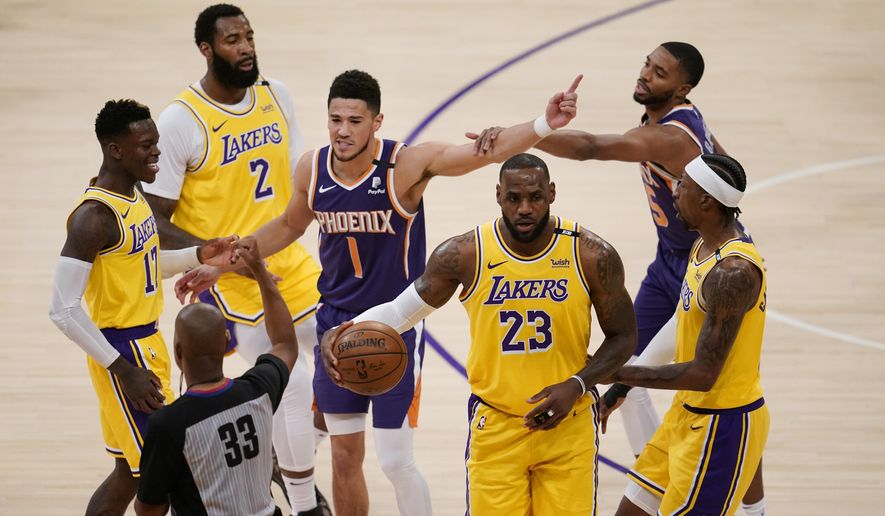OPINION:
Lebron James and his LA Lakers were sent packing in the first round of the NBA playoffs this season. It got me thinking. Perhaps the Lakers organization would be more successful if it had a more racially balanced team on the court, rather than one that is not truly representative of America.
Of the 17 players on the Lakers, only one of them could be classified as White. None of them are Asian. Only one is Hispanic and he’s from Spain.
Given the underrepresentation of White players, it would be logical to assume the Lakers, or the NBA, is discriminating against them based on race. The league should address this inequity with deliberate speed. Perhaps corporate sponsors should think twice about supporting organizations like the NBA and many of its teams who appear to have a pattern of racial bias.
Certainly, Lebron James and many of the Lakers players are talented, but ethnic diversity, we are told, is what makes any organization a real success. Lakers management should take this off season to analyze which players and potential recruits would help address this critical defect within their organization.
There is some diversity in the coaching and front office staff, but it’s the players that are the true representation of the team’s values to the public and therefore should reflect America. This would not be difficult, though it will necessitate establishing strict quotas for appropriate racial balance and a system of preferences to ensure White or other ethnic representation on the team. Skill levels may need to take a back seat to ensure a truly inclusive environment.
Lebron James, who has become a powerful voice in the inclusion movement, has said that racial injustice, “remains a part of everyday life in America and cannot be ignored.” While other teams in the NBA and other professional sports exhibit the same apparent anti-White bias, because of James’ leadership on this issue, his team should be the first to be a model for inclusion.
They need a real effort to ensure that marginalized groups like Whites and others are reflected in the team’s lineup and create a system that would ensure White players a minimum amount of playing time. This, of course, might necessitate better players being benched in favor of others, but each race represented on the team deserves their chance equally, regardless of ability.
Diversity and inclusion in the NBA, Major League Baseball, the NFL and other team sports is important to send a message to young White kids that if they work hard, they too can make it in the big leagues. It’s critical that Lebron James and other stars embrace reforms to prevent race-based marginalization.
Perhaps it makes sense to create elaborate criteria that would benefit players of other races who, if given the chance, might ultimately perform better. A player scoring system, like the Academy Awards, based on a range of qualities that have nothing to do with athletic ability, but will help ensure diversity could be considered as well.
I’m not sure, but the whole system as it exists today just seems unjust.
Very loud voices in America today believe that skin color should be a guide for staffing and advancement. They also freely believe that just because a team, boardroom, executive lounge or other institution lacks some arbitrary level of representation by one group or another, that is in fact the result of racism. This twisted theory is at the core of the systemic racism narrative, irrespective of facts to support it.
Then again, maybe we should stick by placing ability, hard work, and content of character, over color of skin wherever we go. I seem to recall a very wise American saying that.
Black lives do matter, Mr. James, but perhaps on your team all lives should matter. Perhaps an obsession with diversity, equity and inclusion is more a pathology than a prescription for a better society.
• Tom Basile, host of Newsmax Television’s “America Right Now,” is an author and adjunct professor at Fordham University’s Graduate School of Arts and Sciences, where he teaches earned media strategy.




Please read our comment policy before commenting.